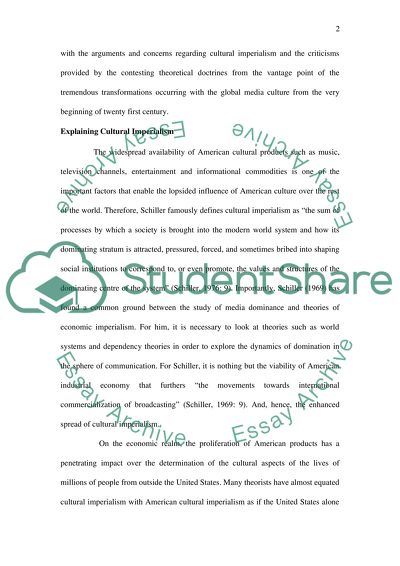Cite this document
(“Cultural Imperialism Essay Example | Topics and Well Written Essays - 3000 words”, n.d.)
Cultural Imperialism Essay Example | Topics and Well Written Essays - 3000 words. Retrieved from https://studentshare.org/history/1508289-cultural-imperialism
Cultural Imperialism Essay Example | Topics and Well Written Essays - 3000 words. Retrieved from https://studentshare.org/history/1508289-cultural-imperialism
(Cultural Imperialism Essay Example | Topics and Well Written Essays - 3000 Words)
Cultural Imperialism Essay Example | Topics and Well Written Essays - 3000 Words. https://studentshare.org/history/1508289-cultural-imperialism.
Cultural Imperialism Essay Example | Topics and Well Written Essays - 3000 Words. https://studentshare.org/history/1508289-cultural-imperialism.
“Cultural Imperialism Essay Example | Topics and Well Written Essays - 3000 Words”, n.d. https://studentshare.org/history/1508289-cultural-imperialism.


